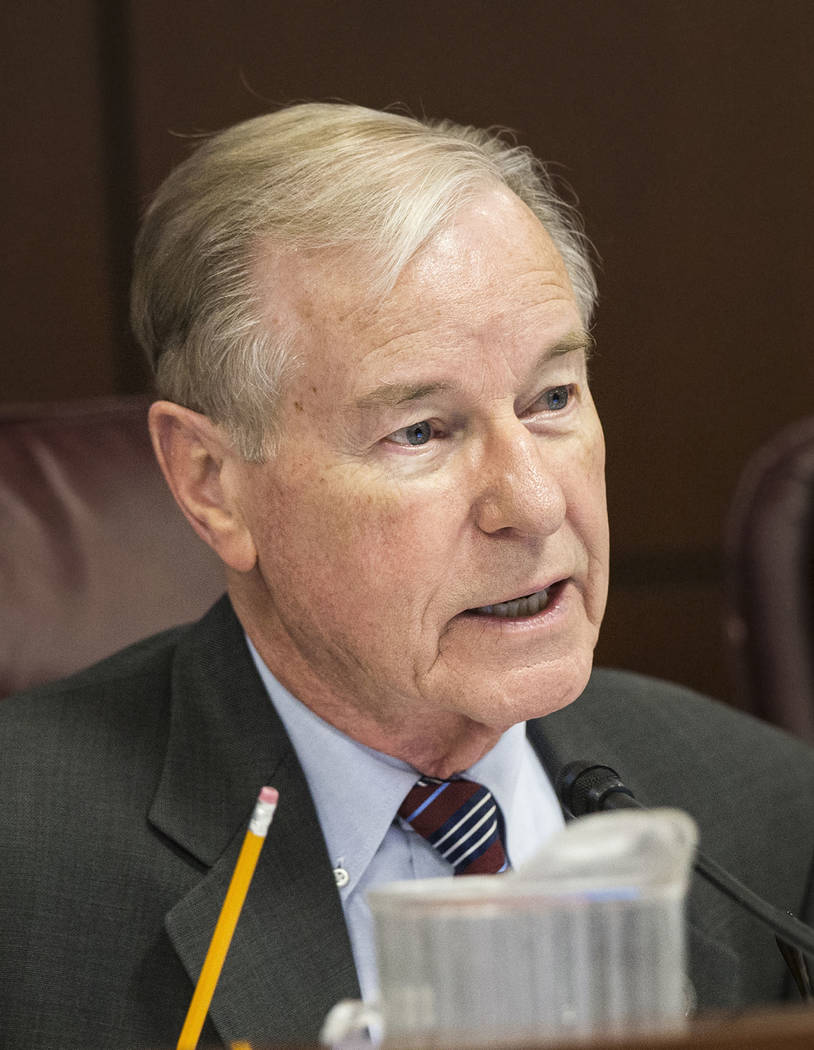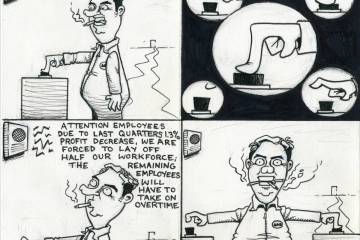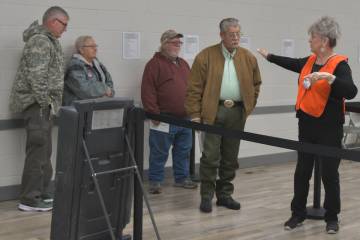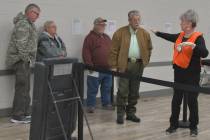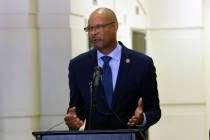EDITORIAL: Nevada’s public records law needs these improvements
Too many government agencies act like Nevada’s public records law is optional. A new bill would change that. Sen. David Parks, D-Las Vegas, is sponsoring Senate Bill 287. It would impose penalties on agencies that improperly deny and delay public records requests.
The law requires that government agencies provide the public with access to most government records upon request. There are exceptions, such as the personal contact information of government employees. The law specifically states, however, that any exemptions must be “construed narrowly.”
For decades, Nevada governments have relied on another workaround. They improperly delay or even ignore requests. There’s little downside from their perspective. The only way to enforce the law is to file a lawsuit.
Even if a requester wins, the court can only award them attorney’s fees. Most requesters, whether they’re individuals, watchdogs or even smaller media organizations, don’t have the ability to file a lawsuit. Even when larger media organizations, like the Review-Journal, sue, a case can take years to wind its way through the courts.
This gives government agencies an incentive to stall, especially if the requested information could be embarrassing. They could win the lawsuit and keep the information hidden. They could lose the lawsuit, but the delay could cause the information to lose its relevance. Or they could lose the lawsuit and use taxpayer dollars to pay attorney’s fees. No wonder so many agencies, like Las Vegas Metro and the Clark County School District, frequently deny or delay requests.
Parks’ bill would change this. Agencies that improperly delay or deny requests would face a $100 a day fine. It also allows the court to impose a $1,000 to $250,000 civil penalty on the agency or individual who improperly denied the request.
This would help alleviate the cavalier attitude many government bureaucrats have to spending taxpayer dollars. It changes the dynamic completely if a government decision maker knows he could personally lose money for denying a request.
These aren’t new ideas. They’re best practices from around the country. Twenty-three states currently have penalties in their public records laws. Some states even go further than what Parks’ bill proposes to do.
In Nebraska, improperly denying a public records request can get a government official removed from office and charged with a misdemeanor. In Colorado, Arkansas and West Virginia, government officials can go to jail for up to three months for not releasing records.
Right to Know Nevada, the ideologically diverse coalition supporting this bill, is more evidence that it’s a good idea. The coalition includes media organizations, like the Review-Journal, Nevada Press Association and Reno Gazette Journal.
Numerous advocacy groups that often vigorously oppose each other have joined the coalition as well. That list includes ACLU of Nevada, Nevada Policy Research Institute, League of Women Voters and Power2Parent.
The bill would also improve the public records law in two other important ways. It would limit the ability of government agencies to charge fees for obtaining records.
Some agencies will make records available, but only if the request pays hundreds or thousands of dollars for the cost of employees to gather those records. Nevada already spends over $6 million a year employing workers to find and disclose public records. Citizens shouldn’t have to pay twice for obtaining information.
The other change would require government agencies to help citizens when they file requests. Government employees currently have no obligation to assist people seeking information.
Sometimes a requester will ask for information that should be publicly available, but not use the correct government jargon. This change would ensure they could obtain the public records they’re looking for.
While this bill would be a step forward, Senate Bill 224, another public records bill before the Legislature, would be a step backward.
That bill would make secret the names of retirees collecting pensions from the Public Employees’ Retirement System. A similar bill garnered overwhelming Democrat support in 2017, before then-Gov. Brian Sandoval vetoed it. Nevada lawmakers should be trying to improve the public records law, not narrow it.
The best public records lawsuits are the ones that never are filed. By increasing the penalties for noncompliance, lawmakers would incentivize government bureaucrats to follow the law.



